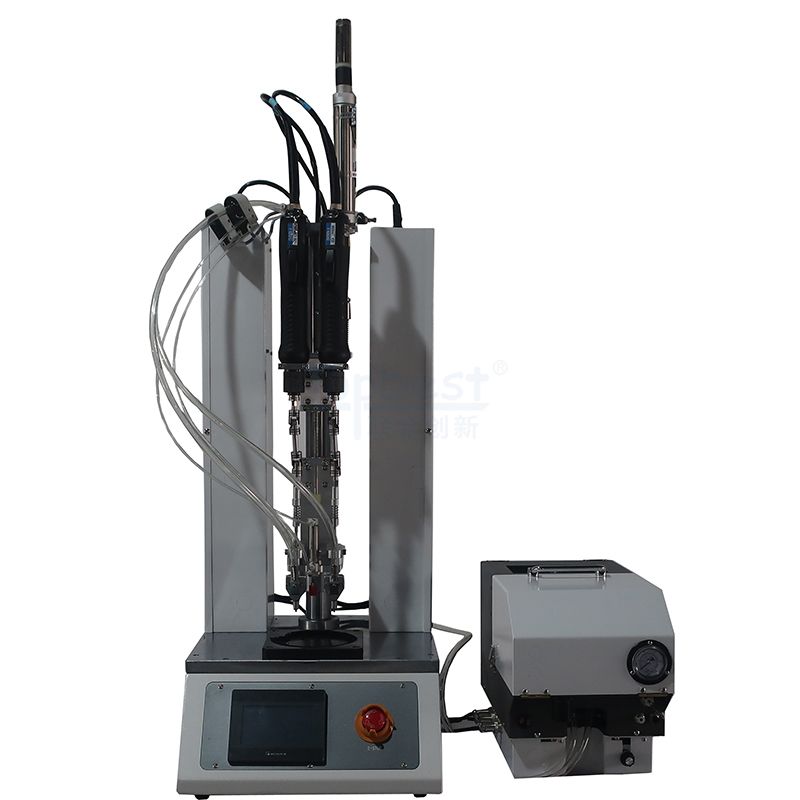Screw Fastening Machines Selection Guide
Screw fastening machines have revolutionized various industries by automating the process of driving screws into materials. Whether you're in manufacturing, construction, or assembly, choosing the right screw fastening machine can significantly impact your productivity and product quality. This selection guide will help you navigate the key factors to consider when choosing a screw fastening machine for your specific needs.
1. Screw Type and Size
The first consideration in selecting a screw fastening machine is the type and size of screws you'll be working with. Different machines are designed for specific screw types (e.g., Phillips, Torx, hex) and sizes (e.g., #6, #8, M4, M6). Ensure that the machine you choose is compatible with the screws you use regularly to avoid compatibility issues.
2. Application and Material
Consider the application and material you'll be working with. Are you assembling electronics, fastening metal sheets, or installing drywall? Different materials may require specialized screw fastening machines. For instance, delicate electronic components may need low-torque machines to avoid damage, while heavy-duty applications might require high-torque machines for tight fastening.
3. Torque and Speed
Torque and speed are critical factors. Torque refers to the rotational force applied to the screw, while speed refers to how quickly the machine can drive screws. The right balance depends on your application. High-torque machines can handle tougher materials and deeper fastenings, but they might be overkill for delicate tasks. Choose a machine with adjustable torque and speed settings for versatility.

4. Automation Level
Auto Screw fastening machines range from manual to fully automated. The choice depends on your production volume and budget. Manual machines require an operator to place screws, while semi-automatic machines can feed screws automatically but still need an operator to align them. Fully automatic machines can handle large volumes without human intervention. Consider your production demands when selecting the level of automation.
5. Ergonomics and Operator Comfort
If operators will be using the screw fastening machine extensively, consider ergonomics and operator comfort. Look for features like comfortable grips, adjustable handles, and lightweight designs to reduce operator fatigue during long shifts. Ergonomic designs can also improve precision and reduce the risk of errors.
6. Quality and Reliability
Invest in a high-quality screw fastening machine from reputable manufacturers. Quality machines are less likely to break down, ensuring consistent performance and reducing maintenance costs. Read reviews, seek recommendations, and ask for warranties to gauge the reliability of a machine.
7. Cost and Budget
Screw fastening machines come in a wide price range. While it's essential to stay within your budget, consider the long-term costs as well. A cheaper machine might lead to higher maintenance and downtime costs in the future. Calculate the total cost of ownership, including maintenance and operational costs, before making a decision.
8. Safety Features
Safety should always be a priority. Look for machines with safety features like torque control to prevent over-tightening, as well as sensors to detect screw presence and alignment. These features not only improve product quality but also reduce the risk of accidents and injuries.
9. Maintenance and Support
Consider the availability of spare parts and technical support. A machine with readily available spare parts and a reliable customer support network can minimize downtime and maintenance hassles.
Conclusion
Choosing the right screw fastening machine is crucial for optimizing productivity, ensuring product quality, and reducing operational costs. Evaluate your specific needs, including screw type, application, and material, while also considering factors like torque, speed, automation level, ergonomics, quality, safety, and budget. By carefully considering these factors, you can make an informed decision and select the screw fastening machine that best suits your requirements.


